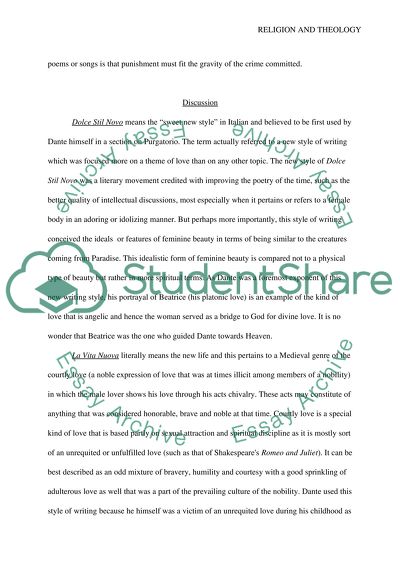Cite this document
(“The purpose of Dante's journey Research Paper Example | Topics and Well Written Essays - 1500 words”, n.d.)
Retrieved from https://studentshare.org/religion-and-theology/1429586-the-purpose-of-danteyies-journey-through-inferno
Retrieved from https://studentshare.org/religion-and-theology/1429586-the-purpose-of-danteyies-journey-through-inferno
(The Purpose of Dante'S Journey Research Paper Example | Topics and Well Written Essays - 1500 Words)
https://studentshare.org/religion-and-theology/1429586-the-purpose-of-danteyies-journey-through-inferno.
https://studentshare.org/religion-and-theology/1429586-the-purpose-of-danteyies-journey-through-inferno.
“The Purpose of Dante'S Journey Research Paper Example | Topics and Well Written Essays - 1500 Words”, n.d. https://studentshare.org/religion-and-theology/1429586-the-purpose-of-danteyies-journey-through-inferno.


